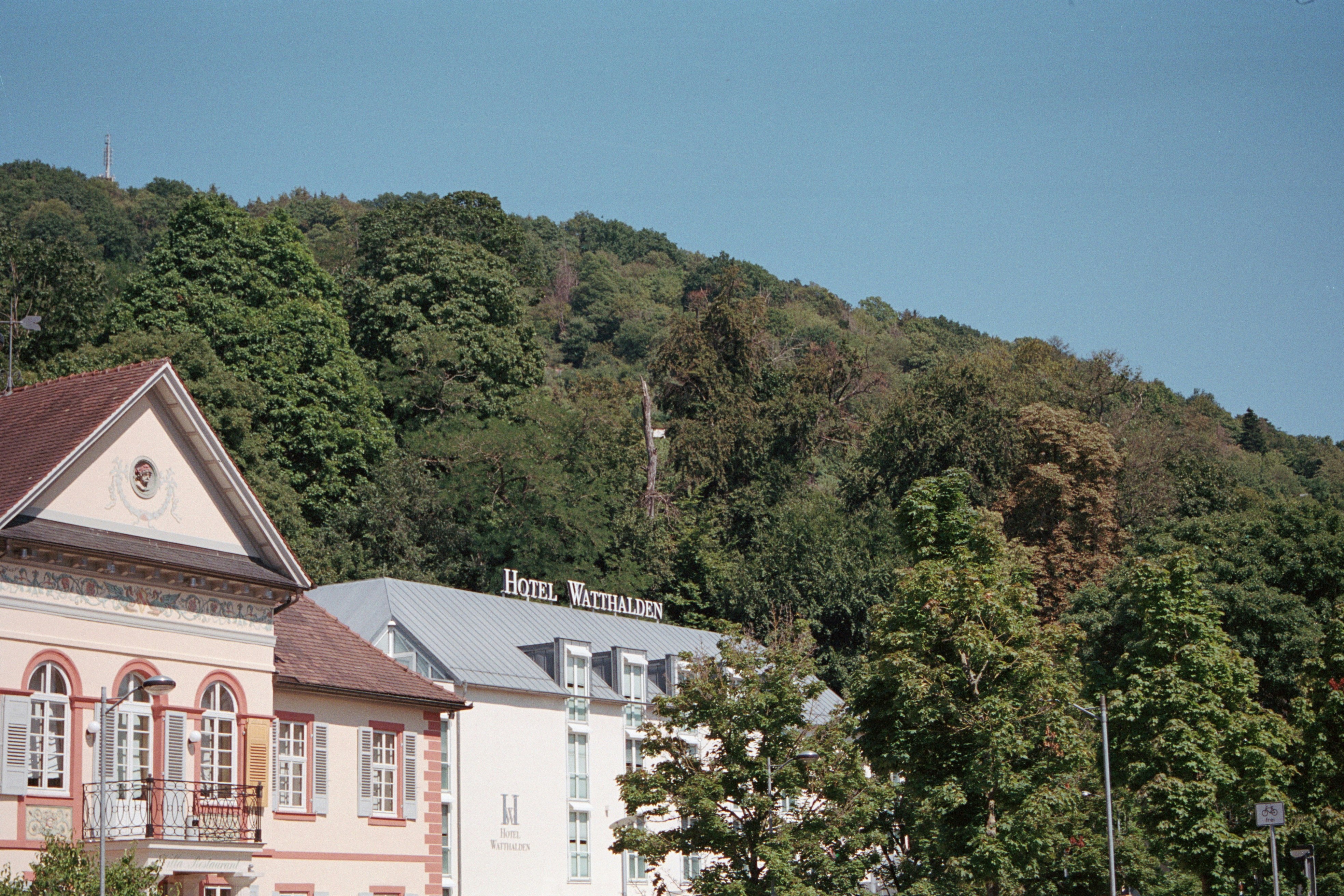Introduction to Sustainable Travel in the Netherlands
Sustainable travel has emerged as a vital aspect of the tourism industry, particularly in regions like the Netherlands, known for its natural beauty and rich cultural heritage. This concept revolves around minimizing the environmental footprint of travel while maximizing the benefits for local communities and ecosystems. In recent years, the Dutch government has prioritized sustainability, taking significant steps to promote eco-friendly tourism as a means to protect natural landscapes and preserve the cultural fabric of the nation.

The Netherlands is renowned for its picturesque canals, vibrant tulip fields, and historic cities such as Amsterdam and Utrecht. As the country welcomes millions of tourists each year, it faces the challenge of balancing visitor influx with the need for environmental conservation. By adopting sustainable travel practices, visitors can have a positive impact on local communities, contributing to the preservation of these destinations for future generations.
Travelers in the Netherlands can engage in various eco-friendly activities that allow them to experience authentic Dutch culture while being mindful of their environmental impact. From biking along scenic routes to exploring urban parks and participating in local conservation projects, tourists are encouraged to immerse themselves in the unique charm of Dutch life. Such activities not only enrich the travel experience but also support the local economy and promote community engagement.
Furthermore, choosing green hotels that adhere to sustainable practices plays a crucial role in minimizing one’s carbon footprint. These accommodations often incorporate energy-efficient systems, utilize locally sourced materials, and support waste reduction initiatives. As a result, travelers can rest assured that their stay aligns with principles of sustainability, fostering a sense of responsibility and awareness while enjoying all that the Netherlands has to offer.
Understanding Your Environmental Footprint
As the global emphasis on sustainability grows, understanding your environmental footprint becomes increasingly vital, particularly in the context of travel. An environmental footprint encompasses the impact of our actions on the planet, measuring the consumption of natural resources and the generation of waste. When traveling, several factors contribute to this footprint, notably transportation, accommodation, and activities undertaken during the journey.
Transportation is one of the most significant contributors to a traveler’s environmental footprint. Air travel, while efficient for long distances, usually results in high carbon emissions. In contrast, opting for trains or buses, especially in the Netherlands where public transportation is well-developed and efficient, can reduce your carbon output markedly. Biking is another popular form of transport in the Netherlands, offering not just a lower environmental impact but also a unique way to experience the local culture and landscape.
The choice of accommodation also dramatically affects a traveler’s environmental footprint. Eco-friendly hotels are becoming increasingly popular, as they often implement sustainable practices such as energy efficiency, waste reduction strategies, and the use of locally sourced materials. Selecting such green hotels not only minimizes your impact but also supports businesses striving to pursue environmental stewardship. Furthermore, travelers can opt for accommodations that promote renewable energy sources, such as solar or wind power, which significantly lessen their overall footprint.
Lastly, the activities travelers engage in can further influence their environmental impact. Activities such as wildlife watching in their natural habitats, guided eco-tours, or volunteering for local conservation projects can create memorable experiences while also promoting awareness and conservation efforts. By remaining conscious of these three facets—transportation, accommodation, and activities—travelers can better align their adventures with sustainable principles, particularly when exploring the eco-diverse landscape of the Netherlands.
Green Hotels in the Netherlands
As the world shifts towards sustainability, the Netherlands has emerged as a frontrunner in eco-friendly accommodations. Numerous green hotels across the country focus on sustainability practices that not only cater to the comfort of their guests but also emphasize environmental responsibility. These hotels often incorporate renewable energy sources, such as solar and wind power, into their operations, significantly reducing their carbon footprint.
Among the notable green hotels are Hotel Jakarta in Amsterdam, which utilizes energy-efficient systems and features a remarkable biophilic design, incorporating indoor gardens that promote biodiversity. Similarly, the Conscious Hotel group, with locations in Amsterdam, demonstrates a commitment to sustainable operations, from using organic materials in room furnishings to offering locally-sourced food in their restaurants.
Another exemplary establishment is the Eco-Resistance Hotel in Groningen, dedicated to integrating sustainability with modern comfort. It hosts workshops on renewable practices and features rooms built with recycled materials. This hotel enriches the guest experience by aligning daily operations with eco-conscious principles, such as water conservation and waste management.
When selecting a green hotel for your stay in the Netherlands, it is essential to look for specific certifications. Certification from recognized organizations, such as Green Key or EarthCheck, indicates adherence to rigorous sustainability standards. Also, investigate the hotel’s practices regarding waste reduction, sourcing of local and organic products, and involvement in community projects, as these factors can enhance your choice for an environmentally responsible lodging experience.

Overall, the diverse array of eco-friendly accommodations in the Netherlands showcases a commitment to sustainability and serves as an inspiring model for responsible tourism. Whether staying in a luxurious green hotel or a budget-friendly option, travelers can contribute positively to the environment while enjoying all that this beautiful country has to offer.
Eco-Friendly Activities to Enjoy
The Netherlands is renowned for its commitment to sustainability, offering a plethora of eco-friendly activities that enable travelers to immerse themselves in nature while minimizing their environmental impact. One of the most enjoyable ways to explore the Dutch countryside is through cycling. With thousands of kilometers of dedicated bike paths, tourists can meander through picturesque villages, lush meadows, and windmill-dotted landscapes. Renting a bicycle is not only an environmentally friendly option but also provides the opportunity to connect with the vibrant local culture and witness the scenic beauty at a leisurely pace.
In addition to cycling, visitors can delve into the world of organic farming by participating in farm tours and workshops focused on sustainable agriculture. Many organic farms across the Netherlands welcome tourists to learn about their practices, enjoy farm-to-table cuisine, and even engage in hands-on activities. This offers an excellent chance to understand the importance of local produce and the benefits of sustainable farming methods. Engaging with local communities through such experiences enriches one’s travel and fosters a deeper appreciation for the land.
Exploring biodiversity in the Netherlands is equally rewarding, with numerous nature reserves and national parks available for exploration. Areas like the Oostvaardersplassen and the Dunes of North Holland provide opportunities for bird watching, hiking, and discovering unique ecosystems. Guided eco-tours are often available, allowing visitors to gain insights from knowledgeable guides about the importance of conservation efforts and the diverse flora and fauna in these habitats. These experiences not only highlight the necessity of protecting nature but also encourage visitors to partake in sustainable tourism practices.
With these eco-friendly activities, the Netherlands offers visitors not just an adventure, but a chance to engage with and respect the environment. Embracing these opportunities leads to a rewarding travel experience that prioritizes sustainability while enjoying the natural beauty of this remarkable country.
Local Transportation Options: A Sustainable Choice
The Netherlands is renowned for its commitment to sustainable travel, and its extensive transportation options serve as an exemplary model for eco-conscious travelers. Among the most popular and environmentally friendly methods of getting around are cycling, public transport, and walking. These modes not only contribute to the reduction of carbon emissions but also provide an opportunity to experience the country’s stunning landscapes and vibrant urban settings first-hand.
Cycling is perhaps the most iconic method of transportation in the Netherlands, with over 35,000 kilometers of dedicated bike paths. The well-maintained infrastructure caters to cyclists of all levels, making it both safe and accessible. Many Dutch cities feature convenient bike rental services, allowing visitors to explore at their own pace. Riding a bicycle not only mitigates carbon output but also encourages a healthier lifestyle, reinforcing the notion that physical activity and sustainability can go hand in hand.

In addition to cycling, the Netherlands boasts a robust public transportation system, including trains, trams, and buses. The extensive railway network connects major cities, enabling efficient travel while minimizing environmental impact. The government has also been investing in greener transit options, such as electric buses. Travelers can benefit from sustainable travel passes that offer unlimited access to various forms of public transport, making it both cost-effective and eco-friendly.
Moreover, walking remains one of the simplest and most sustainable ways to navigate the Netherlands. Many urban areas are pedestrian-friendly and encourage leisurely exploration, allowing visitors to enjoy local attractions without the need for motorized vehicles. Walking reduces carbon emissions significantly, highlighting the viability of this method in promoting a greener future.
Utilizing these sustainable transportation options not only enriches the travel experience but also plays a vital role in preserving the environment. By embracing cycling, public transport, and walking, visitors contribute to a more sustainable tourism model that benefits both the planet and the local communities they visit.
Supporting Local and Sustainable Businesses
When traveling in the Netherlands, engaging with local and sustainable businesses plays a vital role in promoting environmental responsibility and supporting the economy of the communities you visit. By choosing to patronize establishments that prioritize sustainability, travelers can significantly contribute to the local economy while enjoying authentic cultural experiences. Local shops, markets, and restaurants that offer organic or ethically sourced products not only provide high-quality goods but also emphasize social and environmental responsibility.
Visiting local markets is an excellent way to discover seasonal and locally produced food items. These markets often feature organic fruits, vegetables, and handmade products that reflect the region’s culinary heritage. By shopping at these markets, travelers can reduce their carbon footprint and enjoy fresher options that are free from long transportation routes. This practice not only benefits the environment but also allows travelers to interact with local farmers and artisans, fostering a deeper connection to Dutch food culture.
Restaurants that focus on farm-to-table practices are another avenue where one can support sustainable living. These establishments often source ingredients from local providers, ensuring the meals served are fresh and contribute to the region’s economy. Many Dutch restaurants are committed to reducing food waste and using environmentally friendly practices, such as composting and implementing energy-efficient cooking methods. Moreover, enjoying traditional Dutch cuisines in these settings enhances the travel experience by providing insight into local culinary traditions.
In addition to food, local shops and artisans selling handcrafted items reflect the vibrant culture of the Netherlands. By purchasing goods from these local businesses, travelers help preserve traditional craft techniques and support the livelihoods of artisans dedicated to sustainable practices. This direct engagement not only enriches the travel experience but also fosters a sense of community and shared responsibility.
Cultural Experiences and Environmental Awareness
Traveling sustainably in the Netherlands offers a unique opportunity to engage deeply with the local culture while promoting environmental awareness. The Dutch are known for their commitment to sustainability, and various cultural events, workshops, and initiatives reflect this ethos. Travelers seeking meaningful interactions can explore these opportunities to enrich their experiences while contributing positively to the environment.
One notable way to connect with Dutch culture is through participation in traditional craft workshops that emphasize sustainable practices. These sessions often include activities like pottery, weaving, or woodworking, where artisans share their skills passed down through generations. By engaging in these crafts, travelers not only learn about the rich cultural heritage of the Netherlands but also understand the importance of utilizing sustainable materials and techniques that minimize environmental impact.
Moreover, many cities in the Netherlands host festivals and events dedicated to sustainability themes. Examples include green fairs where local producers showcase eco-friendly products, resulting in a direct connection between visitors and the local economy. Such cultural experiences foster a greater appreciation for the Dutch commitment to reducing carbon footprints and promoting renewable resources. Participants in these events often gain insights into sustainable living practices that they can incorporate into their daily lives, regardless of their home country.
Additionally, various educational programs focus on environmental awareness. These programs are designed to engage tourists while also informing them about local initiatives aimed at protecting the environment. Activities might include guided eco-tours that highlight natural sites, as well as opportunities for travelers to participate in conservation efforts, creating a dialogue about the importance of preserving the unique landscapes of the Netherlands.
Through these cultural experiences, travelers can deepen their understanding of Dutch heritage while reinforcing their commitment to sustainable travel. Such interactions promote a sense of shared responsibility in safeguarding the environment for future generations.
Tips for Reducing Your Environmental Impact While Traveling
Traveling offers the opportunity to explore new cultures and landscapes, but it also poses various environmental challenges. To mitigate these impacts and align with sustainable travel principles, consider implementing the following practical tips during your visit to the Netherlands.
First and foremost, packing light is a crucial step in reducing your environmental footprint. By limiting the number of items you bring, you can minimize the weight of your luggage, which in turn reduces fuel consumption during transportation. Opt for versatile clothing that can serve multiple purposes during your trip, enabling you to pack fewer items without sacrificing comfort or style.
Secondly, be mindful of energy consumption while staying in hotels or guesthouses. Choose accommodations that prioritize eco-friendly practices, such as those featuring energy-efficient lighting and temperature controls. When in your lodgings, make an effort to turn off lights and unplug devices when not in use. This small act can contribute significantly to energy conservation, supporting the global movement toward sustainable living.
Minimizing waste is another vital practice for environmentally conscious travelers. Carry a reusable water bottle to refill throughout your journey, and bring along your own shopping bag for purchases. Opt for plastic-free alternatives whenever possible, as single-use plastics are a significant contributor to pollution in beautiful destinations like the Netherlands. Furthermore, seek out restaurants and cafes that prioritize sustainable practices, such as sourcing local ingredients and reducing food waste.
Lastly, make conscious consumption choices by supporting local businesses and engaging in eco-friendly activities. Participate in guided nature walks or bicycle tours that promote awareness of the local ecosystem. These choices not only enrich your travel experience but also contribute positively to the destinations you explore, fostering a culture of sustainability.
Conclusion: Embracing Sustainable Travel
As we reach the end of our exploration into sustainable travel in the Netherlands, it becomes clear that embracing eco-friendly practices not only aids in preserving the environment but also enriches our travel experiences. The nation is home to a myriad of green hotels that prioritize sustainability, providing guests with comfortable accommodations while significantly reducing their environmental impact. Choosing these sustainable lodging options allows tourists to contribute to conservation efforts, supporting businesses that are committed to eco-friendly practices.
Moreover, participating in eco-friendly activities during one’s visit can greatly enhance the overall travel experience. From cycling through picturesque landscapes to exploring nature reserves that promote biodiversity, engaging with the natural beauty of the Netherlands helps foster a deep appreciation for the environment. It encourages travelers to patronize local businesses that uphold sustainable practices, reinforcing the bond between travel and ecological responsibility.
Adopting sustainable travel habits can often lead to unexpected, rewarding discoveries, as travelers become more attuned to the cultural and environmental nuances of their destinations. Supporting local artisans, choosing plant-based meals, and utilizing public transportation are just a few ways to make a positive impact while enjoying the journey. Every small choice contributes to a larger movement toward sustainability, benefiting both the planet and the traveler.
As we look to the future, it is essential for all travelers to be mindful of their choices and the lasting effects they have on the world around them. The Netherlands offers numerous opportunities for sustainable exploration, urging visitors to take conscious steps towards greener travel practices. Together, we can make a meaningful difference, ensuring that future generations can enjoy the beauty of this remarkable country while safeguarding its fragile ecosystems.





